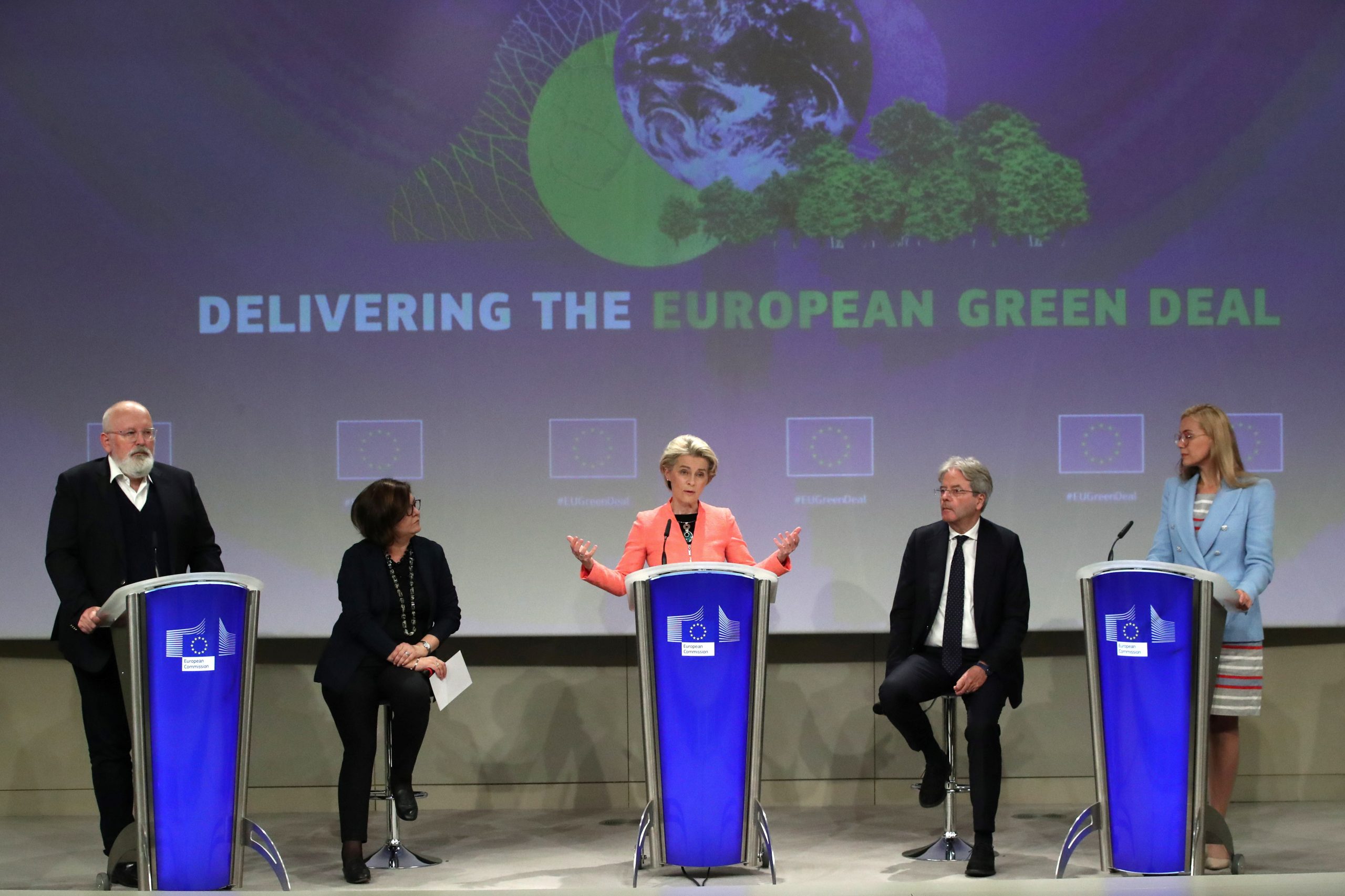
Ian Patrick, FISM News
[elfsight_social_share_buttons id=”1″]
European Union (EU) officials on Wednesday announced a new action plan intent on making their respective countries more “green” in what they see as the fight against climate change. EU Commission President Ursula von der Leyen made the announcement during a press conference presenting what is known as the European Green Deal.
The detailed plan has a central goal for all 27 member nations of the EU to cut their greenhouse gas emission levels recorded in 1990 by 55% by the year 2030. As of right now, the EU has cut their 1990 emission levels by 24%, and it plans to have net zero emissions by the year 2050 if all goes according to plan.
The make-or-break decade has already started.
Our first major climate milestone will be a 55% reduction of emissions by 2030.
And by 2050, we aim to make the EU climate neutral.
Today, we present concrete proposals to reach these goals: https://t.co/h20a4iwgap#EUGreenDeal pic.twitter.com/jw7l1G6V7e
— European Commission (@EU_Commission) July 14, 2021
Overall, the deal asks all member nations to play their part in making the 55% a possibility. Part of the plan includes calling on all members of the Union to individually focus on emission problems present in each nation, thanks to a document known as the Effort Sharing Regulation.
When it gets to the details of cutting emissions, the plan often highlights issues it finds within particular sectors. For example, the deal calls for the energy sector to have 40% of all energy coming from renewable resources by the target year and for 36% energy efficiency. The latter goal would be attained by mitigating emission levels from transportation like cars and airplanes as well as building renovations.
Shifting from emission cuts, the plan also aims to create something known as the Social Climate Fund. According to the description provided by the European Commission, this new effort will “provide dedicated funding to Member States to help citizens finance investments in energy efficiency, new heating and cooling systems, and cleaner mobility.”
The Social Climate Fund would be financed by the EU budget, using an amount equivalent to 25% of the expected revenues of emissions trading for building and road transport fuels. It will provide €72.2 billion of funding to Member States, for the period 2025-2032, based on a targeted amendment to the multiannual financial framework. With a proposal to draw on matching Member State funding, the Fund would mobilise €144.4 billion for a socially fair transition.
In addition to these efforts, the deal is also expected to “create sustainable, local and well-paid jobs across Europe.”
Let's deliver the #EUGreenDeal.
Our new proposals:
1⃣🏃♀️ A plan to transform our societies
2⃣🚈 Make transport sustainable
3⃣👨🔧 Lead the 3d industrial revolution
4⃣🔋 Clean our energy system
5⃣🏡 Renovate buildings
6⃣🌳 Work with nature
7⃣🌍 Boost global climate action
— European Commission (@EU_Commission) July 14, 2021
